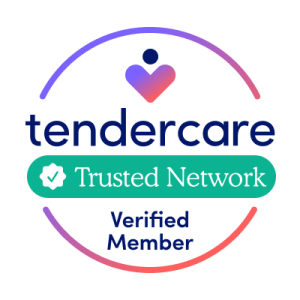Planning Ahead: Cost of Long-Term Care and How to Pay for It.
Did you know that nearly 70% of people turning 65 today will need some form of long-term care at some point in their lives? It’s a reality many families face, and with the cost of care expected to rise by over 30% in the next ten years, planning ahead is more important than ever.
Long-term care can quickly become a financial strain. Whether it’s in-home assistance, an assisted living community, or a skilled nursing facility, the monthly costs add up and they’re only going up.
As a Senior Real Estate Specialist® (SRES®), I work closely with seniors and their families to help them understand their options. There are several ways to pay for long-term care, including:
-
Long-term care insurance
-
This type of insurance helps cover the cost of long-term care services, such as in-home care, assisted living, or nursing facilities. It’s typically purchased in advance and can ease the financial burden when care is eventually needed.
-
-
Government programs like Medicaid and Veterans benefits.
-
Medicaid provides assistance for low-income individuals to pay for long-term care, especially in nursing homes, but eligibility requirements vary by state. Veterans and their spouses may also qualify for benefits that help cover in-home or facility-based care through the VA.
-
-
Immediate annuities or other financial products
- Immediate annuities convert a lump sum of money into a stream of monthly income, which can be used to help pay for care costs. Other financial tools like long-term care riders on life insurance policies may also offer coverage.
-
Personal savings or investments
- Many individuals rely on their savings, retirement accounts, or investments to fund long-term care. This option offers the most flexibility, but it also requires careful financial planning to ensure resources last.
-
Reverse mortgages, particularly for those choosing to age in place.
- A reverse mortgage allows homeowners aged 62 and older to tap into the equity in their home without selling it. This can provide cash flow to cover in-home care expenses while allowing them to stay in their home.
One of the most common sources of funding is the sale of the family home. For many seniors, their home is their largest asset. Selling it can unlock significant value to help cover the cost of care, especially if they’re transitioning to a residence that better fits their changing needs.
You don’t have to navigate this alone. As an experienced SRES®, I’m here to guide you through your real estate decisions with care and expertise, helping you or your loved ones plan for a future that feels both secure and supported.
Estimated Monthly Costs of Long-Term Care Services
Source: Genworth Cost of Care Survey, December 2023
| Type of Care | 2023 | 2033 (Projected) |
|---|---|---|
| In-Home Care | ||
| Homemaker Services | $5,720 | $7,657 |
| Home Health Aide | $6,292 | $8,456 |
| Community and Assisted Living | ||
| Adult Day Health Care | $2,058 | $2,766 |
| Assisted Living Facility | $5,350 | $7,190 |
| Nursing Home Facility | ||
| Semi-Private Room | $8,669 | $11,650 |
| Private Room | $9,733 | $13,080 |
Contact a Senior Real Estate Specialist
Navigating the sale of a family home can be complex and emotionally taxing. As a senior real estate specialist, I can help guide you through this process with expertise and compassion. Feel free to reach out to me for personalized assistance.
As your local SRES® (Senior Real Estate Specialist), I’m here to guide you every step of the way.
Whether it’s planning, selling your home, or finding your next perfect space, I’m ready to help.
Let’s simplify your move together!
Jennifer Martire Baukol for all your real estate needs.
“I am committed to providing the most personable, elite and professional customer service.
My promise to you is to
(1) put your interests first,
(2) help you reach your goals quickly,
(3) treat you as she would like to be treated,
(4) focus on the solution not problems, and
(5) provide you with the highest level of attention and feedback.
Whether you need extra room for a home office or nursery, or a smaller home that requires less upkeep and cost, I’ll bring you to the place that’s tailor-made just for you.
Servicing Westchester County, New York & Fairfield County, Connecticut.
Contact me today to get started. (914) 584-2211.”
White Plains Local Real Estate. Scarsdale Real Estate. New Rochelle Real Estate. Rye Real Estate. Rye Brook Real Estate. Larchmont Real Estate. Harrison Real Estate. Purchase Real Estate. Edgemont Real Estate. Tarrytown Real Estate. Armonk Real Estate. Greenwich Real Estate. Old Greenwich Real Estate. Stamford Real Estate. Darien Real Estate. Local Realtor. Get Organized. Selling Home. Westchester County, New York. Fairfield County, Connecticut. Selling your home. Downsizing.
Reference: The Center for REALTOR® Development (CRD) confers the Seniors Real Estate Specialist® (SRES®) designation, which is an official credential of the National Association of REALTORS® (NAR).


 Facebook
Facebook
 X
X
 Pinterest
Pinterest
 Copy Link
Copy Link





